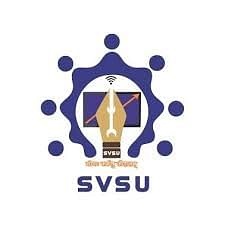The Future of Computing: Unleashing the Power of Quantum Computing for
B.Sc. Computer Science Students
As the field of computer science evolves, one of the most groundbreaking
developments on the horizon is quantum computing. This revolutionary technology
has the potential to solve complex problems that are currently beyond the reach
of classical computers. For B.Sc. Computer Science students,
understanding quantum computing is not just an academic exercise but a gateway
to the next frontier in technology. In this blog, we will explore the
fundamentals of quantum computing, its underlying principles, potential
applications, and the future challenges and opportunities it presents.
Understanding Quantum Computing
Quantum computing leverages the principles of quantum mechanics to process
information in fundamentally different ways than classical computing. Classical
computers use bits as the basic unit of information, which can be either 0 or
1. In contrast, quantum computers use quantum bits, or qubits, which can exist
in a state of 0, 1, or both simultaneously due to a property called
superposition.
Another critical property of qubits is entanglement, which allows qubits
that are entangled to be instantaneously correlated with each other, regardless
of the distance separating them. These properties enable quantum computers to
perform many calculations in parallel, offering the potential for exponential
speed-ups in solving certain types of problems.
The Building Blocks of Quantum Computing
1. Qubits:
The fundamental unit of quantum information. Qubits can be implemented using
various physical systems, including trapped ions, superconducting circuits, and
photons.
2. Superposition:
This principle allows qubits to be in multiple states simultaneously. For
example, a qubit can represent both 0 and 1 at the same time, providing a vast
computational advantage.
3. Entanglement:
Entangled qubits have their states linked in such a way that the state of one
(whether it is 0 or 1) directly determines the state of the other, even if they
are far apart. This property is crucial for the efficiency of quantum
algorithms.
4. Quantum
Gates: Analogous to classical logic gates, quantum gates manipulate
qubits through operations that change their state. Quantum gates are the
building blocks of quantum circuits.
5. Quantum
Circuits: These are sequences of quantum gates applied to qubits to
perform computations. Quantum algorithms are implemented through quantum
circuits.
Key Quantum Algorithms
Several quantum algorithms demonstrate the power of quantum
computing:
1. Shor's
Algorithm: This algorithm can factor large numbers exponentially
faster than the best-known classical algorithms. It has significant
implications for cryptography, as many encryption schemes rely on the
difficulty of factoring large numbers.
2. Grover's
Algorithm: This algorithm provides a quadratic speed-up for
unstructured search problems. It can search an unsorted database of N items in
roughly √N steps, compared to N steps for classical algorithms.
3. Quantum
Fourier Transform: Used in various quantum algorithms, including
Shor's, this transform can solve problems related to period finding and phase
estimation efficiently.
Practical Applications of Quantum Computing
Quantum computing at best college Kanpur has the potential to revolutionize various
fields by providing solutions to problems that are currently intractable for
classical computers:
1. Cryptography:
Quantum computers can break widely used encryption methods, prompting the
development of quantum-resistant cryptographic techniques.
2. Optimization
Problems: Quantum algorithms can solve complex optimization problems
more efficiently, with applications in logistics, finance, and artificial
intelligence.
3. Drug
Discovery: Quantum simulations of molecular structures can accelerate
the discovery of new drugs by accurately modeling interactions at the quantum
level.
4. Material
Science: Quantum computers can simulate the properties of new
materials, leading to advancements in superconductors, batteries, and other
technologies.
5. Machine
Learning: Quantum machine learning algorithms have the potential to
enhance data processing capabilities and improve pattern recognition and
decision-making.
Challenges in Quantum Computing
Despite its potential, quantum computing faces several significant
challenges:
1. Decoherence
and Error Rates: Quantum systems are highly susceptible to
environmental noise, leading to errors in computations. Developing robust
quantum error correction methods is essential for reliable quantum computing.
2. Scalability:
Building a large-scale quantum computer with thousands or millions of qubits is
a formidable engineering challenge. Ensuring qubits are entangled and
error-corrected over long periods is crucial for practical quantum computing.
3. Hardware
Development: Different physical implementations of qubits have their
advantages and limitations. Research is ongoing to identify the most viable
technologies for scalable quantum computing.
4. Algorithm
Development: Designing efficient quantum algorithms for a broader
range of applications is an active area of research. Many classical problems
may not have direct quantum counterparts, requiring innovative approaches.
Conclusion
Quantum computing at top college Kanpur represents a transformative
shift in the way we approach computation and problem-solving. As this
technology continues to mature, it will unlock new possibilities across various
domains, from cryptography to artificial intelligence. For B.Sc. Computer Science
students, embracing quantum computing today means becoming pioneers in a field
that promises to redefine the boundaries of what is computationally possible.
By building a strong foundation in quantum principles and staying engaged with
the latest advancements, students can position themselves at the forefront of
this exciting technological revolution.












